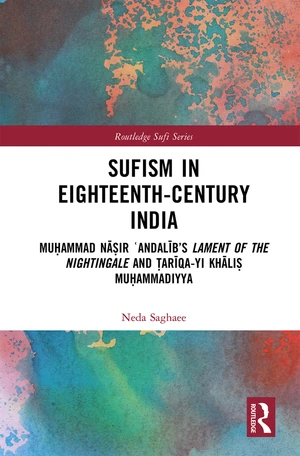Sufism in Eighteenth-Century India focuses on one particular treasure from surviving Persian manuscripts in India, NÄla-yi Ê¿AndalÄ«b, written by Muḥammad NÄá¹£ir Ê¿AndalÄ«b (d. 1759), a NaqshbandÄ« MujaddidÄ« mystical thinker. It explores the convergence and interrelation of the text with its context to find how Ê¿AndalÄ«b revisits the central role of the Prophet as the main protagonist in his allegorical love story with great attention to the circumstances of the Muslim community during the eighteenth century. The present volume elucidates Ê¿AndalÄ«bâs Sufism calling for a return to the pristine form of Islam and the idealization of the first Muslim community. It considers his ṬarÄ«qa-yi KhÄliá¹£ Muḥammadiyya as a derivation of the ṬarÄ«qa-yi Muḥammadiyya, which had an important role in promoting Islam. The book attempts to clarify and systematize all of the concepts which Ê¿AndalÄ«b employs within the framework of the KhÄliá¹£ Muḥammadiyya, such as the state of the nÄá¹£ir and the KhÄliá¹£ MuḥammadÄ«. It addresses controversial topics in religion, such as the struggles between ShiÊ¿a and Sunni Muslims, and the controversies between ShuhÅ«dÄ«s and WujÅ«dÄ«s. It illuminates two key personalities, AbÅ« Bakr al-á¹¢iddÄ«q and Ê¿AlÄ« b. AbÄ« ṬÄlib, and two types of relationships, the maÊ¿iyya and Ê¿ayniyya, with the spirituality of the Prophet. The book will be of interest to scholars and students interested in Islamic studies, Islamic mysticism, the intellectual history of Muslims in South Asia, the history of the Mughal Empire, Persian literature, studies of manuscripts, Islamic philosophy, comparative studies of religions, social studies, anthropology, and debates concerning the eighteenth century, such as the transition from pre-colonialism to colonialism and the origins of modernity in Islam.
Price history
Nov 24, 2022
€47.78

